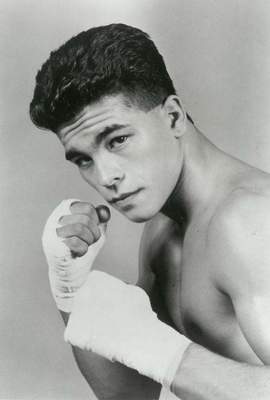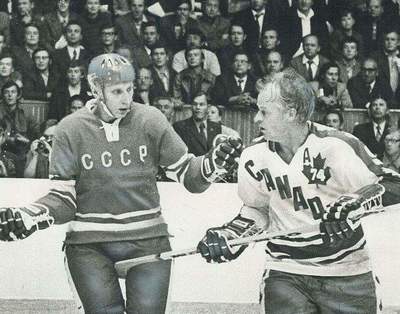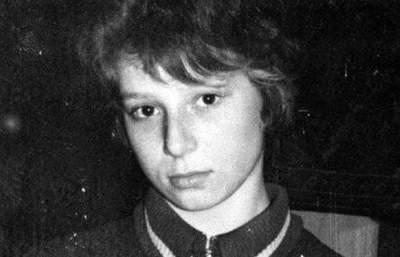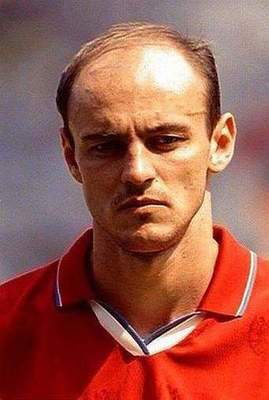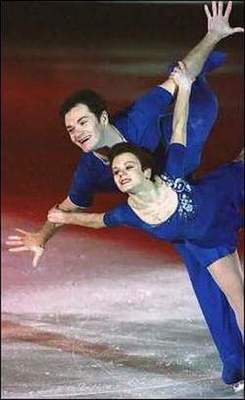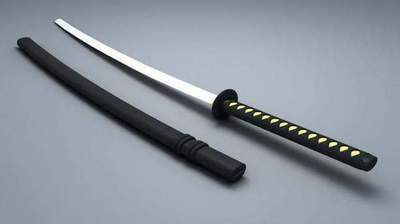Aleksandr Rou: how was the fate of the famous kinoskazochnika
• Aleksandr Rou: how was the fate of the famous kinoskazochnika
44 years ago, died Soviet film director, author of the famous kinoskazok Alexander Rowe. More than one generation of children has grown on his magical film "Bag of Bones", "Mary-Weaver", "Kingdom of Crooked Mirrors", "Frost", "Fire, water and copper pipes", "barbarian beauty, long braid", "Evenings on a farm near Dikanka "and others. Unfortunately, the director, to create the best films for children, their children did not, and his life was not at all like a fairy tale, though fantastic turns in it was enough.
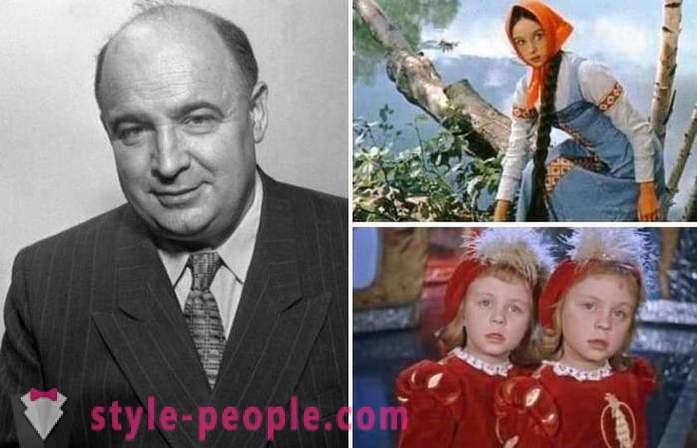

Few fans of the director, poetisized Slavic folklore to the movies, they know that in their origin, he had nothing to do with the Slavic culture. His father was an Irish engineer, arrived at the beginning of the twentieth century. in Russia under the contract in order to establish the milling industry. In Yuryevets he had a love affair with a Greek Julia Karadjordje, and the couple had a son, Alexander. When the First World War, his father abandoned the family and returned to Ireland, and his son remained in Russia, and have always considered myself Russian.
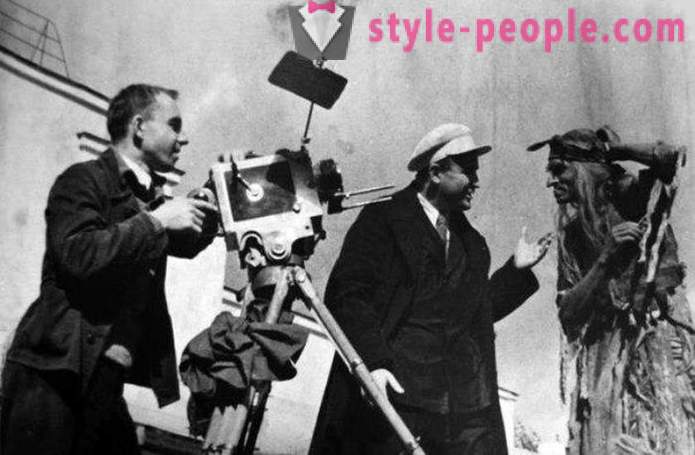
The director on the set
Mother was often ill, and with 10 years, Alexander had to earn by selling matches and ridges. While still in school he became interested in theater and began to engage in amateur clubs. Since then, about another profession Rowe never dreamed. First, he became assistant director Yakov Protazanov, on the advice which they graduated from the Drama College. Ermolova, and then he began to make films.
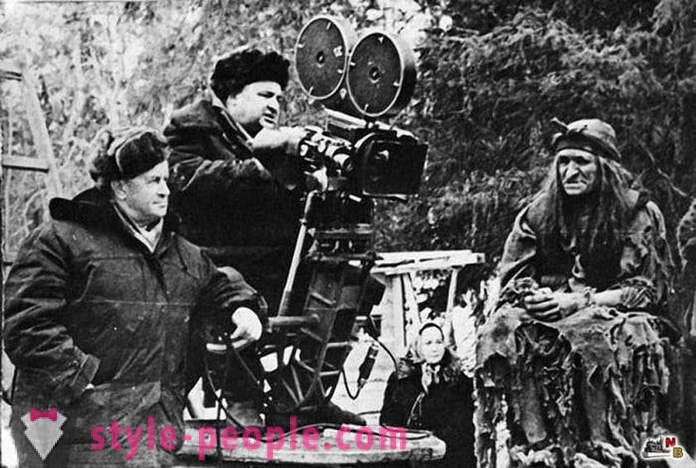
Aleksandr Rou while filming * Frost * 1964
Film-tale began to Rowe the only genre in which it was possible to avoid the ideological underpinnings. His task, he saw a very different: "In the fairy tale, no truth can not be given in the form of moralizing - that children do not like - Rowe wrote. - The moral of the film is deeply hidden in the abundance of adventure, surprises, and sometimes in funny situations. Film - the art is extremely emotional, and our task - to excite the young spectator the fate of the characters, to make him someone to love and someone to hate ... ".
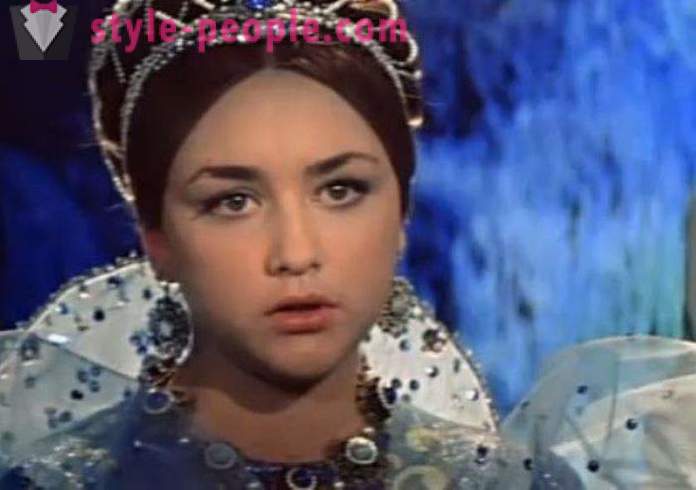
A scene from the movie * Barbara-beauty *, 1969C first film "On the wave of the wand," the director has formed his own team, which has worked for decades. According to the statement by Leonid Akimov, Alexander Row, "was his constant set of actors, among whom he tried to distribute the main characters, but to newcomers Rowe treated rather suspicious." Actor George Millyar became not only permanent member of his team, but his friend. Due Rowe Millyar became known as Baba Yaga deserved Soviet cinema - it is in this role he was most impressed by the young and adult viewers. Sometimes in a movie once he got it 2-3 image.
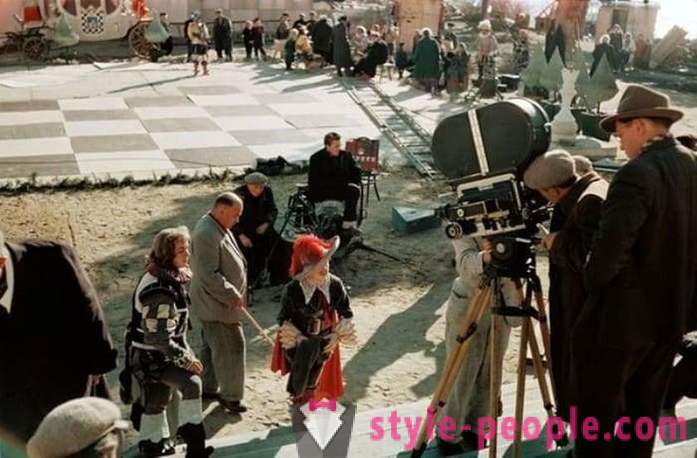
The director on the film * New adventures of a cat in boots * 1958
Alexander Rowe called the first kinoskazochnikom country, and it was their base. In many ways, he was a pioneer - refusing to hand-drawn animation in children's movies, he is creative tasks laid upon the shoulders of the actors. The special effects in his works were at that time amazing: self-propelled oven, running yourself a bucket of water, folding wood, etc. According to the order of the magic oven created a Moscow engineer, inside it was a place for the driver and the pyrotechnic device - to the furnace produced clouds of steam.. . In the workshop of toys in Zagorsk at his request, we have made the 11-meter snake Gorynycha for the fairy tale "Vasilisa the Beautiful." Sets it in motion was a whole team of 20 people.
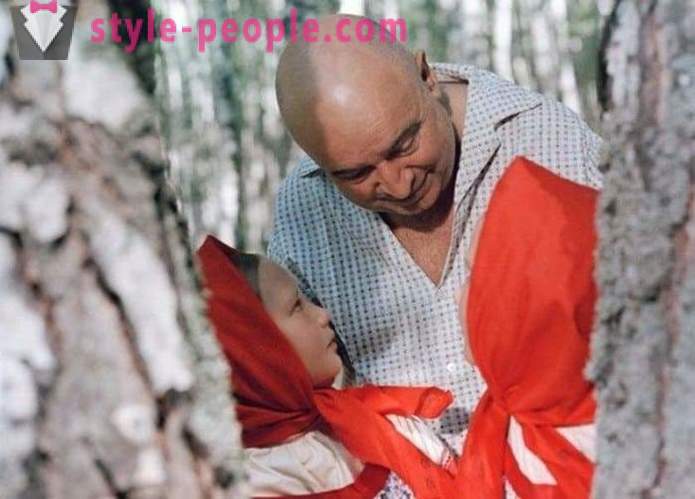
Aleksandr Rou while filming * Frost *, 1964Ckazki Rowe enjoyed great success not only in the USSR, but also abroad. In the US, "Mary-Weaver" and "Jack Frost" with success were released, and Steven Spielberg talked about the Soviet director with admiration: "It is a real independent cultural phenomenon that no one has managed to repeat!".
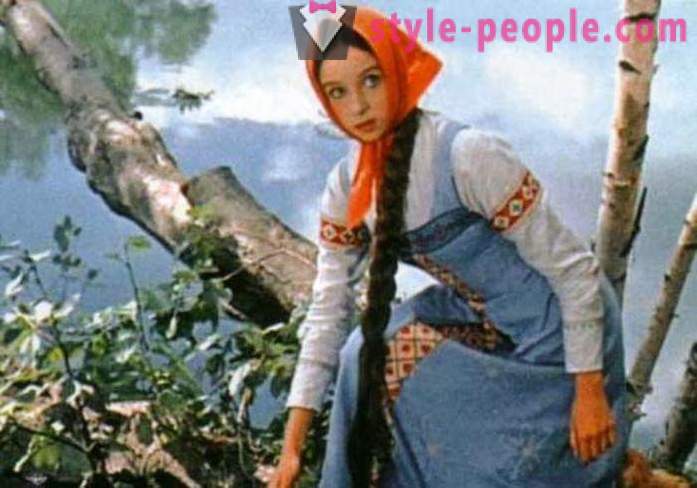
A still from the movie * Frost * 1964
However, before you reach such impressive successes, and the director had to face serious difficulties. For 10 years he has been deprived of the opportunity to make a film - at the end of the 1940s. tale was considered too easy genre, unprincipled and do not reflect the life of the Soviet people, and care Row from the socio-political themes evoked dissatisfaction kinochinovnikov. For a time the director filmed documentaries, he worked at the Yerevan studio, and only in 1955 he was able to return to Moscow and again to do his favorite thing - children's cinema.
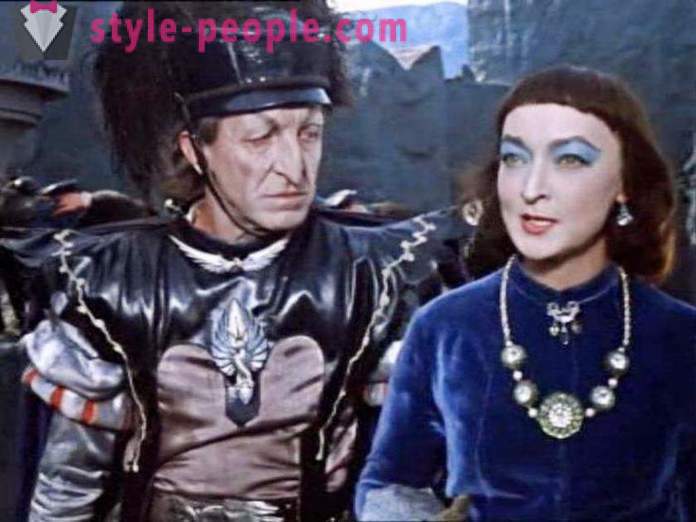
A still from the movie Kingdom of Crooked Mirrors * *, 1963
But even the best movies Rowe caused dissatisfaction management: for the "Kingdom of Crooked Mirrors" director received a severe reprimand from the fact that the negative characters have played the brightest actors, and as a result of the forces of evil seemed more attractive than the power of good. The recognition it has achieved in the second half of the 1960s., When his film "Jack Frost" received the top prize at the Venice Film Festival, and in 1968 he was awarded the title of People's Artist of the RSFSR.
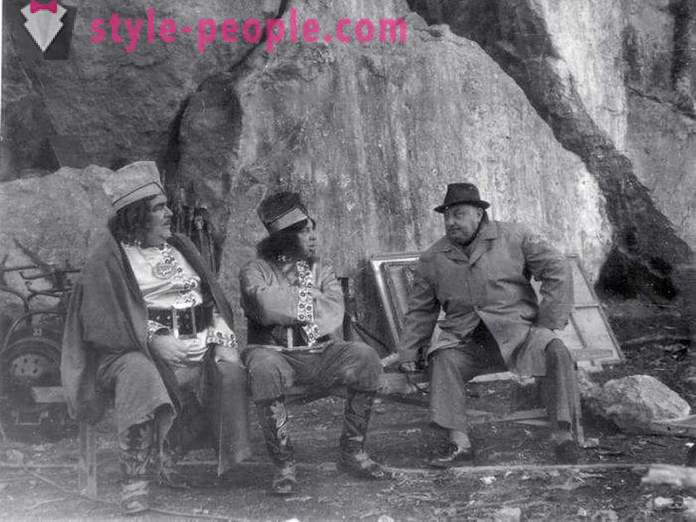
Aleksandr Rou while filming * * Golden horn 1972
Failures have long pursued a director and in his personal life. Twice he tried to build relationships with actresses, but these unions were not long-lasting. Family happiness he managed to gain only at the third attempt. Wife became faithful assistant, to become parents but they have not happened for him. December 28, 1973 at the 68th year of his life, Alexander Rowe died, did not fulfill a dream to show the famous film-tales to their children.































